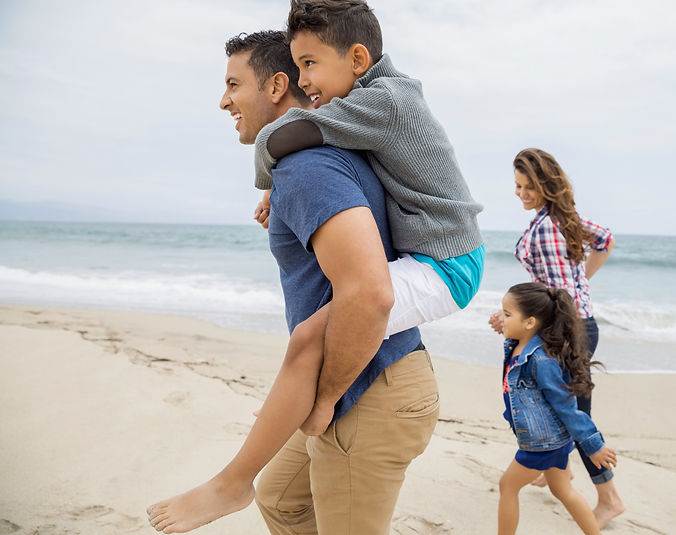

Child Therapy
Child Therapy is a specialized form of therapy focused on helping children understand and manage their emotions, behaviors, and relationships. Through play, creative activities, and age-appropriate techniques, child therapy addresses challenges such as anxiety, behavioral issues, trauma, or family changes. It provides a safe, supportive environment where children can express themselves and develop healthy coping skills, fostering resilience and positive development.
Empower your child to overcome challenges and grow.
Let's create a brighter path forward together!
The Benefits of Family Intervention in Child Therapy
Family intervention can greatly benefit your child by creating a supportive environment where everyone collaborates to address challenges together. When parents are actively involved in therapy, it strengthens family bonds and equips you with the tools to better understand and support your child's emotional and behavioral needs.
This collaborative approach enhances communication, improves problem-solving skills, and develops a unified strategy for positive change, leading to better outcomes for your child and your family as a whole.
Let’s work together to create that positive change!
What to Look For:
Signs of Mental Health Concerns in Children by Age
Ages 3 - 6 years old
1. Behavioral Changes: Noticeable shifts in behavior, such as increased aggression, frequent tantrums, or withdrawal from social interactions.
2. Emotional Distress: Persistent sadness, excessive fears or anxieties, and difficulty expressing emotions, which can lead to outbursts or regression in developmental skills.
3. Physical Symptoms: Frequent complaints of unexplained physical ailments, like headaches or stomachaches, which may indicate stress or emotional difficulties.
Ages 6 - 13 years old
1. Emotional and Behavioral Changes: Persistent sadness, anxiety, or anger, as well as noticeable changes in behavior, such as increased aggression, withdrawal from friends and family, or a decline in academic performance.
2. Social Difficulties: Struggles with making or maintaining friendships, extreme shyness, bullying behavior, or significant difficulties in social interactions that lead to isolation.
3. Physical Symptoms and Regression: Frequent complaints of physical ailments (e.g., stomachaches, headaches) without a medical cause, or regression in skills, such as reverting to bedwetting or losing previously acquired social or academic skills.
Ages 13 - 18 years old
1. Intense Emotional Distress: Persistent feelings of sadness, hopelessness, or anxiety that interfere with daily life, along with extreme mood swings or irritability that disrupt relationships and school performance.
2. Changes in Behavior or Social Circle: Withdrawal from friends and family, sudden changes in interests, or engaging in risky behaviors such as substance abuse, self-harm, or aggression towards others.
3. Academic Decline and Lack of Motivation: A noticeable drop in academic performance, lack of interest in school activities, or failure to complete assignments, indicating possible underlying emotional or psychological struggles.

